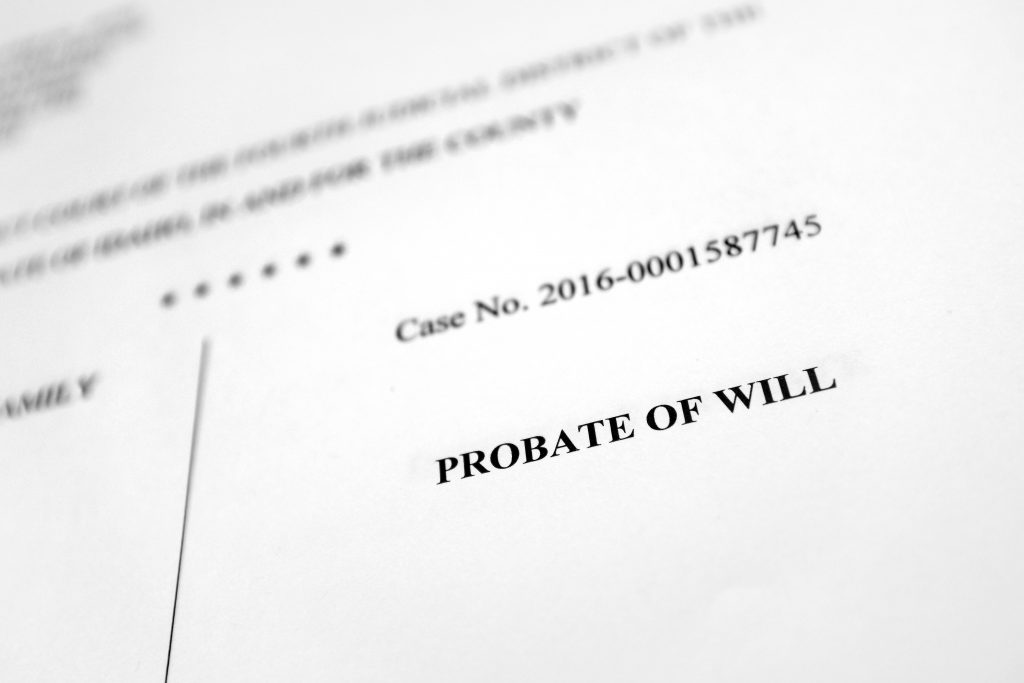When a person dies, the assets are transferred to their rightful heirs. To properly distribute the inheritance to the designated beneficiaries, the deceased’s last will and testament has to be proven valid and legal.

What Is Probate?
Probate is the legal process of certifying a deceased person’s will, in case there is one. If a will does not exist, the estate will still undergo probate to settle any remaining taxes, bills and distribute it. While probate law varies by state, in general, the probate process includes:
- Authenticate the person’s last will, if any
- Identify the assets of the deceased individual
- Calculate the value of the assets
- Settle the final taxes and bills due
- Distribute remaining assets to the lawful beneficiaries
Sorting out a relative’s or family member’s estate after death can be challenging. A valid and written will help make the probate process less difficult for those left behind. Aside from the details of the estate’s distribution, the last will shall also assign the will’s executor. Some people die without preparing a will
I’m a 20-something stay-at-home mother and wife. I have an amazing husband, a beautiful daughter, two loving dogs, and a lazy cat. I wouldn’t change my life for anything! I love to read, listen to music, cook and blog!

Speak Your Mind